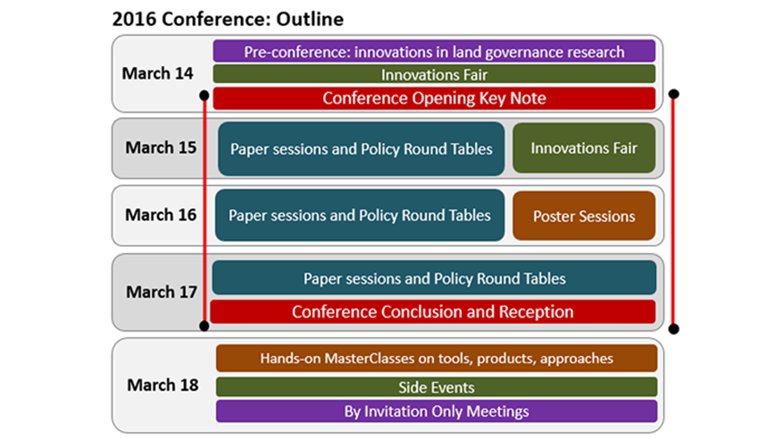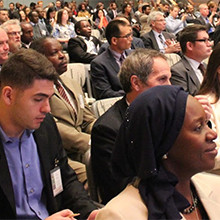Now in its 17th year, the annual World Bank Conference on Land and Poverty brought together key stakeholders from governments, civil society, academia, the development community, and the private sector to discuss land policy design and implementation, impact evaluation and progress monitoring, and the latest research on these issues. This year’s conference paid special attention to working at scale, mainstreaming innovations, and sustaining investments in land governance. Conference participants discussed what can be done to guarantee inclusiveness, sustainability, and reliability, build capacity, and ensure that better land information and more tenure security contribute to wider societal objectives and progress towards the Sustainable Development Goals.
Conference Structure
A pre-conference workshop on “Assessing Land Governance” was held immediately preceding the opening session on March 14. The keynote speaker for the 2016 Conference was Paul Romer, Professor of Economics, at the Stern School of Business at New York University, (see presentation).
Sessions comprising select papers and debates on important innovations and policy issues ran concurrently on March 15-17, together with poster presentations. The 2016 Innovations Fair featuring how innovations in technology and open data can help improve land governance at scale was held all day on Monday, March 14 and half day on Tuesday, March 15. A post-conference learning day with MasterClasses was held on March 18 and offered hands-on classes to familiarize participants with cutting edge tools and techniques developed to help policy makers. All session descriptions and papers have been published in the online agenda and recordings of selective sessions are available to watch online by clicking RECORDINGS.
Presentation by Klaus Deininger on the Closing Plenary, March 17 is available for download here.





















